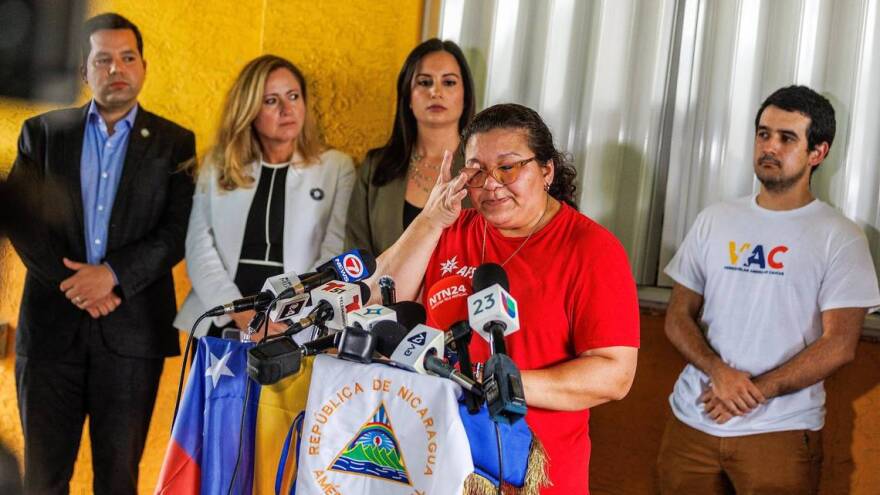More than 40 members of Congress, including four representing South Florida, wrote President Biden and administration officials this week urging them to allow more Nicaraguans to live and work in the U.S. under a special immigration program.
They want the administration to “redesignate” Temporary Protected Status, or TPS, for Nicaraguans, similar to what Biden officials offered Venezuelans.
Late last month, the administration announced an estimated 472,000 Venezuelans who had arrived in the country as of July 31 would be eligible for TPS.
U.S. Reps. Sheila Cherfilus-McCormick, D−Miramar, and U.S. Rep. María Elvira Salazar, R−Miami, are among the South Florida lawmakers who signed the letter sent Wednesday to Biden, U.S. Department of Homeland Security Secretary Alejandro Mayorkas and Director of Citizenship and Immigration Services Ur Jaddou. Others from South Florida signing the letter: U.S. Rep. Debbie Wasserman Schultz, D−Weston, and U.S. Rep. Frederica Wilson, D−Miami Gardens.
TPS is a 1990 law that allows undocumented immigrants already in the U.S. to legally stay in 18-month increments if the Homeland Security secretary determines that natural disasters or civil strife prevent them from safely returning home.
“It would be both irresponsible and cruel to send them back into harm’s way,” Cherfilus−McCormick said in a statement, noting that Nicaragua is “enmeshed in a dire socio-political and humanitarian crisis that has grown considerably worse.”
The administration did announce last June to extend TPS for about 4,000 Nicaraguans, allowing them to remain here until July 5, 2025.
The lawmakers, however, want the administration to start a new TPS for the tens of thousands of Nicaraguans who in recent months have sought to escape their country. They say Nicaraguan President Daniel Ortega’s “regime has repeatedly violated human rights, suppressed political dissent and engaged in acts of violence against its citizens.”
They also say TPS is especially needed for 222 former Nicaraguan political prisoners, who now live in the U.S., because they had their citizenship stripped away and “remain stateless.”
READ MORE: Nicaragua frees 222 opponents, sends them to U.S.
Early last month, DHS Secretary Mayorkas told the Miami Herald that his agency did not have “any intention right now to re-designate Nicaragua for Temporary Protected Status.”
“That is not to say that we do not continuously review the country conditions, and whatever country is a focus of study by reason of the conditions there,” he said. “So that is something that is always ongoing.”
Critics of TPS say it’s not temporary at all because both Democratic and Republican administrations typically extend it for years. They note Nicaraguans first qualified for TPS more than two decades ago after Hurricane Mitch killed thousands of people and wrecked the economy in several Central American countries, and has been extended again and again.
Currently, foreign nationals from 16 countries qualify for TPS. Those from Somalia, for instance, became eligible in 1991, more than 30 years ago.
Debate over TPS for Nicaraguans is closely watched in South Florida because Miami-Dade alone is home to the largest Nicaraguan community — more than 103,000 — in the country, according to the Census Bureau.






